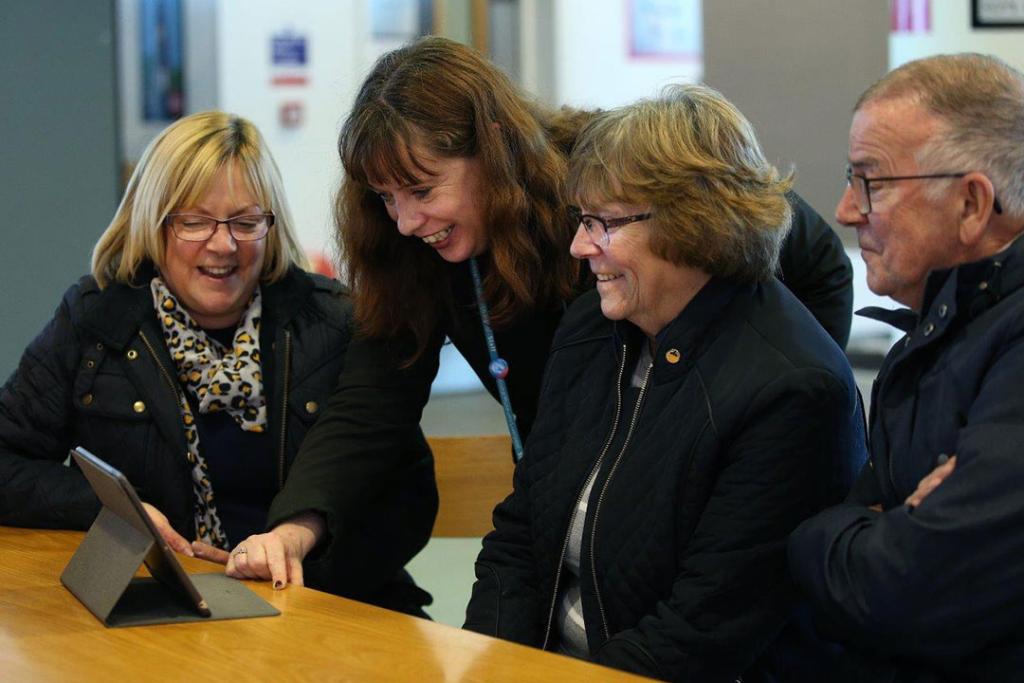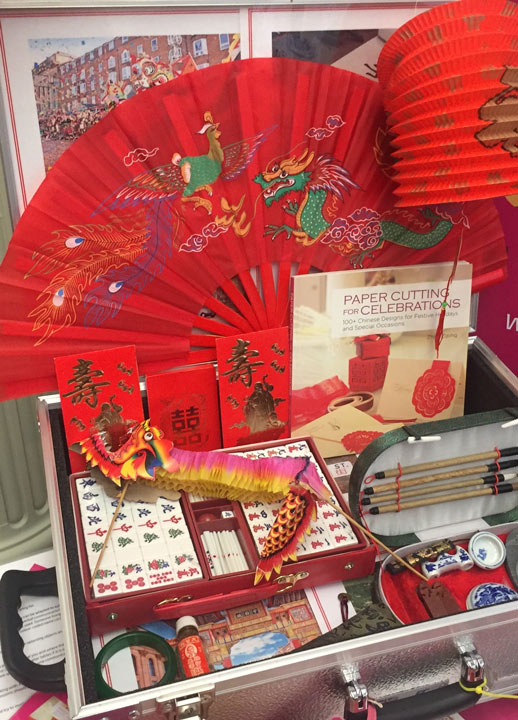Why culture and inclusion are key to dementia care
House of Memories is a unique education programme created by National Museums Liverpool to help museums across the UK, and beyond, support people living with dementia. It’s our mission to help people live well with dementia and it’s a job I’m incredibly passionate about.

House of Memories family and friends dementia awareness workshop © Gareth Jones
A new approach to dementia care
When House of Memories began in 2012, it was unusual for a museum to take a direct and active interest in the lives of people living with dementia, particularly with the goal of developing digital resources and training for families and care providers.
But we knew we had a unique perspective and position that could help make important strides in the field of dementia care. Museums are experts at looking after memories and House of Memories is designed to provide knowledge and understanding of how information about a person’s history and life experience can be a valuable tool for reaching people in a deeply meaningful way. Something that dementia can sadly make very difficult. So we started to develop interactive training sessions, provided access to a free object loan service and created the museum memory app: My House of Memories. We also began working closely with the health and social care sector to make National Museums Liverpool an important asset for older people, their families and care networks.
The power of objects

A senior from NTUC Health using My House of Memories Singapore app © NHB
It has never been more important to support older people who remain vulnerable, socially isolated and ‘shielded’, as a result of the Coronavirus pandemic. At present, there are substantial barriers to digital social engagement for isolated older people, including a lack of access to technology and support to engage actively online. For older people who continue to be lonely and isolated the My House of Memories app and similar digital tools provide a unique way to record and share hidden memories that enable a renewed connection between neighbours, families and community networks.
Based on the power of objects to elicit deeply held memories, the free app allows people to explore everyday objects from the 1920s to 1980s. Objects like cinema tickets, a Singer sewing machine and a 10-shilling note, brought to life with music and film, can help those living with dementia draw on memories to create personal connections with family, friends and caregivers. Users can also save objects to their own memory trees, memory boxes or memory timelines to share with family and friends.
Connecting people
House of Memories’ commitment to design an inclusive programme has been successful and challenging in equal measure. The My House of Memories app was co-created with people living with dementia and required us to re-think our approach to achieve dementia friendly digital design.
The way in which we communicate with each other has changed dramatically and that meant we had to change too. Museums exist in a world where society no longer wants to be a passive consumer. People of all ages can now make movies on their mobile phones; take photos and blog about their experiences. People demand constant and immediate access to cultural heritage. This presents both opportunities and challenges for the museum sector to learn how to connect, to listen, and to understand how people wish to engage with their culture, heritage and their personal, and often sensitive histories.
Reaching diverse audiences

Liverpool Chinese community memory suitcase
Allowing everyone in society to access such experiences is not the job of the few. A truly inclusive museum enables the whole organisation to embrace a shared goal to enable the whole of society to benefit; a deep-seated belief that everyone should feel connected to and be part of how a museum tells its stories and reflects those who visit them. Museums are bursting with brilliant objects and incredible stories, to inspire, challenge and stimulate us and it is imperative to me that our diverse and under-represented audiences are reflected and listened to. This would of course include our older population, but recent events and demands for change across the world, sparked into life by the killing of George Floyd are evidence that as a society, we still have a very long way to go before we can say we are truly inclusive.
This challenge will defeat all but those with a solid determination and commitment, as it will defeat those who devote insufficient effort, time and patience.
